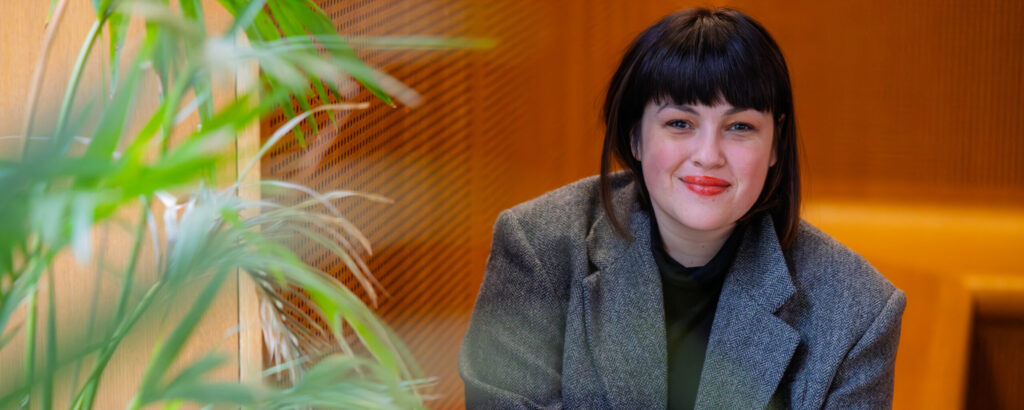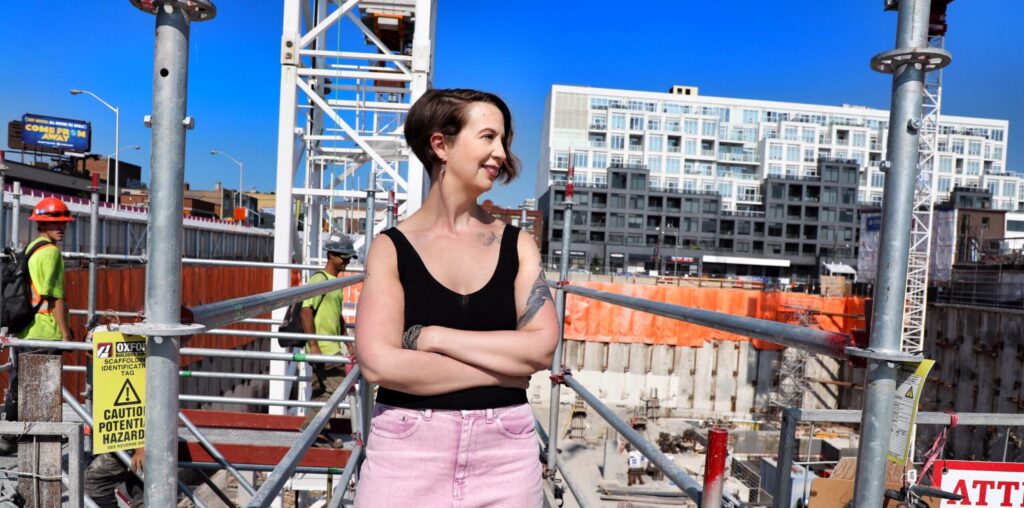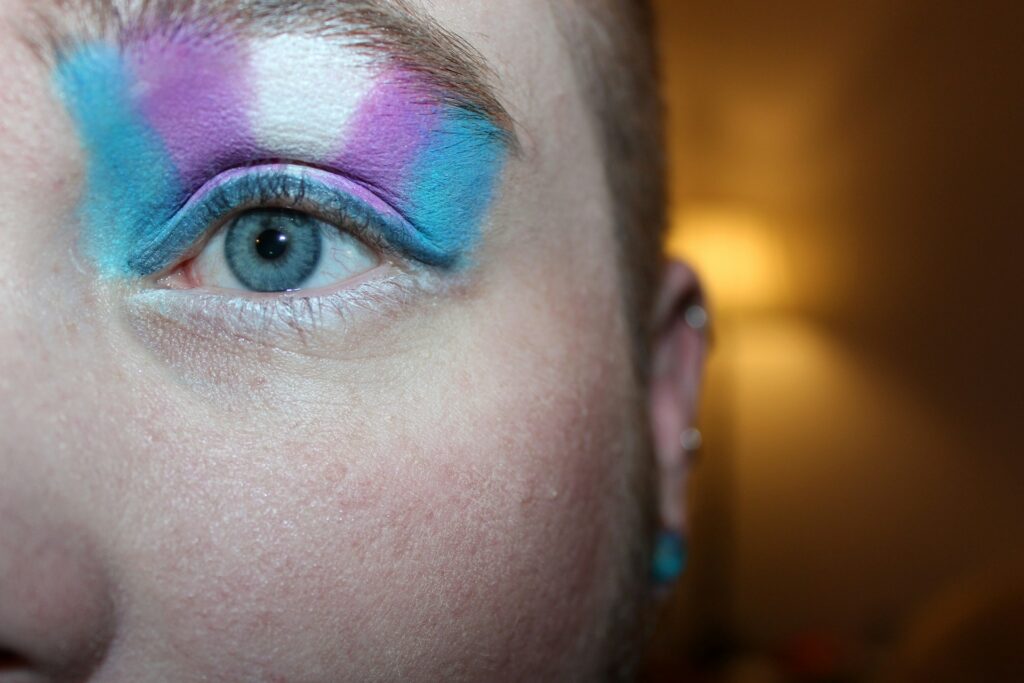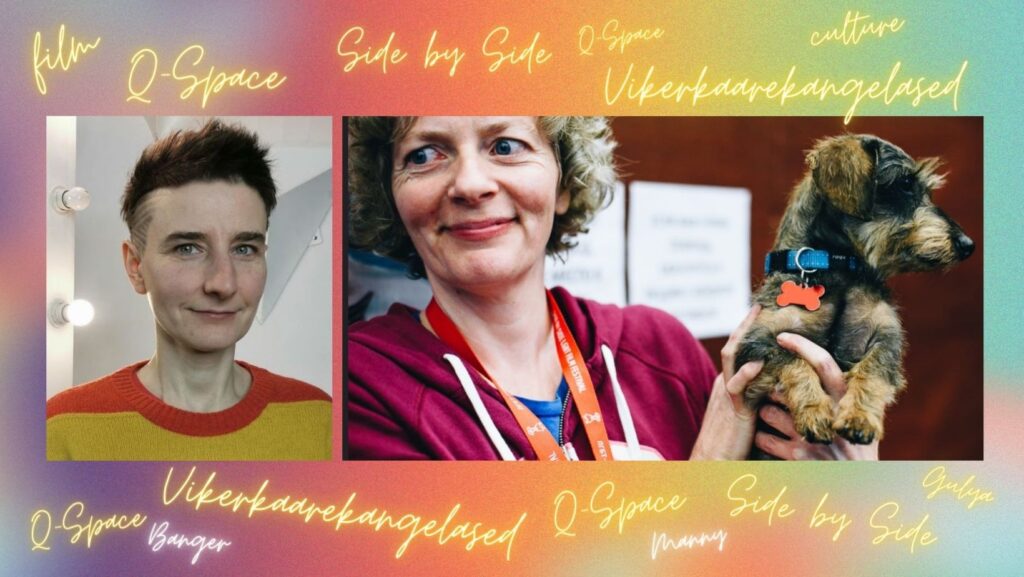Bahraini women are not expected to do housework but have fewer other rights
How are women and minorities faring in a tiny Gulf state ruled by a conservative, patriarchal, Islam-influenced monarchy? What are the criteria for a “real man” in Bahrain? Who shoulders the domestic chores in Bahraini households, if local women are not expected to do them? What should transgender people expect in a country where ‘wearing the clothes of the wrong gender’ is punishable by law? Feministeerium chats with Rukaya Al Zayani, an academic activist from Bahrain.

Al Zayani is a PhD student in Gender Studies at Örebro University in Sweden. Rukaya researches gendered violence, forced migration, and queer theory. Rukaya holds a Bachelor’s and Master’s degree in Political Science and International Relations from Bahçeşehir University and Bilgi University in Istanbul. In addition to teaching and research, Rukaya is a mental health advocate and a feminist academic-activist. A recent book “Child Rights in Humanitarian Crisis: Improving Action and Response” has a chapter by Rukaya on “Forced Migration, Gendered Violence and the Child Rights Perspective: Modalities of Violence against Marginalised Groups in Turkey”. Photo: Rukaya Al Zayani
Please describe your home country, Bahrain, its political system and societal setup.
Bahrain has always been a melting pot known for its coexistence and tolerance, and people in Bahrain are proud of this fact. However, there has been a historical rift between the major Muslim religious sects (Shia and Sunnis), leading to political strife that I believe are the consequence of the British divide-and-rule policy. The effects of British colonialism are therefore essential to look into, as it is a long history that requires ethnosectarian analysis, but that’s not my field.
I like the diversity of Bahrain, it doesn’t feel homogenous. I come from a predominantly Arab Sunni family, and even though my father doesn’t have Persian roots, he can speak Farsi because he grew up in a Persian neighbourhood in the country. My late grandmother spoke Farsi too. She learned it by socialising with her neighbours. My grandmother was illiterate and I find it amazing that she could learn a new language orally. Due to Britain’s presence in the country, the locals use many local Bahrainized English words in their daily lives, especially the older generation. I have encountered many people in the country who can speak Urdu, Hindi, and even Tagalog. People are amicable and social in Bahrain; it boils down to how they socialise and with whom they socialise and work with.
I believe the people of Bahrain are nationalists. Many people have anti-immigrant sentiments towards South Asians and other Arabs from Syria and Yemen being recruited to join the military. I believe the former stems from dehumanisation and the latter from resentment of the political naturalisation of “other” Sunnis, which the Bahraini government has conscripted into the Bahraini army. To prevent a coup, the state does not conscript Shiites. There is no military service for either males or females in the country, there is no obligation to join the military and the local Sunni population is not enough to fulfil the needs for the military. The government therefore invites Sunni Arabs and other Sunni non-Arabs from other countries (Syria, Yemen, Jordan, Pakistan). The opposition sees this as unfair, as these naturalised Arabs and non-Arabs are given accommodation, education and health care as a primary package entitled with the job.1 They also argue that moving their entire families with them as foreign-born soldiers break the integrity of society.
During the Arab uprisings in Bahrain, officers pulled me over at a checkpoint on my way home. The officer did not speak Arabic nor did he speak any English. Instead, he raised his voice at me in Urdu. At that moment, I was extremely confused, thinking why I was pulled over and unable to communicate with an officer from a security force in my own country. I don’t lean towards the right and the far-right with populist tendencies, nor am I anti-immigrant. Yet I find it very strange when I can’t communicate in this kind of situation.
Interestingly, many people have internalised Orientalism and anti-Arabism. This is a byproduct of colonialism and imperialism in the region. They crack racist jokes against their ethnicity, the kind of jokes that consolidate anti-Arab racist stereotypes.
How would you list the most critical problems when it comes to human rights? How do these issues relate to tribalism, patriarchy and religion?
When you Google Bahrain, you might come across human rights violations that are deeply political. As a feminist, there are current critical problems Bahraini women face in the country; despite the efforts of state feminism in the past decades, Bahraini women still can’t pass their citizenship to their children if they are married to foreign citizens (they are allowed to sponsor their foreign husband and kids with a residency permit), and this is deeply associated with patriarchy. In addition, there are various discriminatory laws towards women due to religion. For example, the Shiaa sect adheres to the Jaafari court, which is the Islamic Shiaa court, and Sunnis use the civil court. In Islamic courts, a woman’s testimony is worth half a man’s. On the contrary, in the civil court, which the Sunnis use, women’s and men’s testimonies are equal.

Traditional henna painting Bahraini style. Photo: Hille Hanso
When it comes to women’s and minorities rights, where does Bahrain stand?
Regarding domestic violence, Bahrain criminalised domestic violence in 2015, whereas in the past, the perpetrator signed a pledge at the police station promising not to commit the act again.
Domestic violence and marital rape have been normalised as an everyday mundane practice. The argument is that women are expected to submit to men in Islam. In my opinion, it’s just patriarchy and violence towards women. Unfortunately, this topic has a lot of secrecy and stigma, so it is often not spoken about in society.
Regarding political participation, Bahraini women have had the right to vote and stand in local and national elections since 2002. However, the number of female representatives still needs to be higher. Bahrain needs gender mainstreaming. I don’t believe people are against women in general. The general climate has always supported empowering women; however, in my opinion, within limits. I believe, therefore, that with constant gender mainstreaming Bahrain can achieve a higher level of gender equality between the sexes.
What would you highlight regarding LGBTQ+ rights?
Trans women are excluded from the definition of women. The focus of womanhood in Bahrain is biological. Regarding transgender people, it is generally seen as “cross-dressing”, which is illegal in Bahrain. I remember years ago I knew a transgender person, and once they told me they got into a car accident and were terrified of the police arresting them because they were in drag. They called another friend to pick them up before the police arrived. I can’t imagine navigating how to run away while being involved in a car accident.
Although homosexuality is legal in the country according to the 1976 penal code that allows homosexual relations between consenting adults from the age of 21 and over, the general discourse in Bahrain is based on the “don’t ask, don’t tell” policy. As long as people do it behind closed doors and do not show affection in public.2 Although ‘homosexuality’ is not illegal in the country, the penal code in Bahrain is a broad penal code that’s open to interpretation by prosecutors.
Yet, “cross-dressing” is unlawful in Bahrain (as in the entire Gulf) and is considered a sin. Perhaps the Islamic interpretation in Bahrain has been influenced by Wahhabism 3 and is culturally frowned upon. The Islamists have been vocal against LGBTQ+ in the country and spoken against lesbianism in female schools (public schools in Bahrain are segregated). Global sentiments also influence us – the negative climate against the LGBTQ+ community has increased in recent years in conjunction with the rise of anti-gender and anti-LGBTQ+ far-right in the ‘West’. The government has not been vocal with or against the LGBTQ+ community in the country. However, in the past ten years, there has been a crackdown on Asian gay employees working in massage parlours and barber shops. Many have been deported.
It seems that in authoritarian or semi-authoritarian conservative societies, governments and elites want to invent their “own way” regarding human rights. Behind this is a fear of too much liberalism, potentially undermining their political power. They also tend to stifle civil movements. Please describe Bahraini organisations working on human rights. What issues are they focusing on?
Yes, I agree! Their approach to human rights starts from the foundations of human rights and further constructs them according to the country’s socio-political and often religious framework. For example, the focus on women’s rights in Bahrain is solely gender-binary. It means that the focus is on cis-women only.
While gender-based violence is a worldwide epidemic, in Bahrain’s culture men will get shamed, if they assault a female in any degree or form. There is a cultural saying, “he is not a real man if he hits a woman” – the man’s masculinity gets targeted in this sense. I find this to be interesting. Of course, it doesn’t eradicate violence against women, but this shaming is a remarkable dynamic. Unfortunately, it doesn’t apply to child abuse.
Few local initiatives combat domestic violence and violence against women in general. For instance, there is a local initiative in Bahrain named Shamsha (previously known as WCCI) that provides help to women and other gender minorities that are experiencing domestic violence, intimate partner violence, gender-based violence, etc.
In terms of civil societies in the country, there is the Family Support Center of the Bahraini Women’s Union, Aisha Yateem Family Counselling Center, Awal Legal Aid Center, the Batelco Care Center for Family Violence Cases, and the Migrant Workers Protection Society Shelter. NGO Shamsha combats and advocates against domestic and sexual violence by providing 24/7 intervention helplines to victims.
My volunteering experience with Shamsha was enriching, and I was extremely grateful that we have an organisation like this in the country. When I was volunteering there, the other advocates and I swapped answering the mobile hotline number every 12 hours. We answered calls and text messages. On many occasions, we went to the hospital, met with the client, and wrote a report of the incident which the case officer followed up later. We provided help through the phone, in the hospital, and in police stations.

Women in Manama souq, market area. Photo: Hille Hanso
Talking of institutions and international conventions in general, where does your country stand?
Bahrain needs more work on advancing women’s and minorities’ rights. Bahrain is a signatory country of the CEDAW treaty. In addition, there are national policy frameworks in Bahrain, such as the National Gender Balance Model, for mainstreaming women’s needs and equal opportunities. Furthermore, the General Framework of Women’s Political Participation was established in coordination with the Supreme Council for Women by the King in 2001 to draft policies and acts concerning women’s affairs and rights.
There are state-run institutions and foundations and some civil society organisations. Overall, there are around 600 registered NGOs, not including other charitable organisations, focusing on monitoring human rights, women’s and youth’s rights.
The Kingdom established the Supreme Council for Women in 2001 to overlook women’s needs, boost equal opportunities and political participation, and provide psychosocial, legal, and financial support for women in need. Another state-run initiative is the National Human Rights Institution, established in 2009 by a royal decree. The institution monitors human rights violations, conducts investigations, and submits proposals to consolidate human rights. There are also women’s affairs offices in all governorates in the country.
In 2017, the Supreme Council for Women in cooperation with the interior ministry launched the National Domestic Violence Database project named ‘Takatof’ which monitors domestic violence cases, analyses indicators, and develops a broad definition of violence. Another state initiative includes declaring the 1st of December as Bahraini Women’s Day (initiated in 2008). It is celebrated every year across the country in schools and workplaces, with the Bahrain television showing celebratory ads all day long in addition to posters in the streets. In general, it feels like a women’s national day in the country. In 2011, the state launched the Bahraini Female Entrepreneur Honor seal that awards Bahraini pioneer businesswomen in the country. There has been a push to advance women’s political participation, civic engagement, and economic opportunities in Bahrain, as well as implement a mechanism to eradicate violence against women.
Migrant workers’ rights, both male and female, are always on the human rights defender’s agenda when it comes to all Gulf countries. Speaking from practical experience, how would you list the problems that concern these groups?
Dehumanisation sums up this issue. From first-hand experience, South Asian workers are constantly dehumanised, they are mistreated and exploited at work with low-paying jobs and due to the low-paying jobs, they live in overcrowded accommodations. Women migrant domestic workers are not covered by the labour law at all, and that is the issue. The only regulation is for the residence permit/work permit; hence no protection mechanism. Once the domestic worker arrives at their employer’s house, the employer tends to take away their passport. The claim is that she might run away and employers (who are responsible) don’t want to deal with the police and problems that occur when a domestic helper leaves. In a nutshell, it is modern-day slavery.
Of course, I am not saying everyone is equally horrible. I have met many families that had their domestic workers with them for over 20 years until they retired and went back to their home countries, but that doesn’t mean there are not abusive people out there. It is mere luck at this point.

Manama’s shopping malls are popular leisure spots for families. Photo: Hille Hanso
In Manama, the capital, I noticed in the shopping malls that local families are strolling, but a woman of another nationality is pushing their pram. Is it correct to say migrant domestic helpers take responsibility for other chores as well?
Yes, house chores are gendered in the country, but my friends are surprised when they find out that women in Bahrain are not expected to clean and cook. That’s not feminist, though. Women simply transferred their domestic labour to someone who is often dehumanised and viewed as inferior. This is similar to the USA before the civil rights movement. Black women were exploited for labour, and white women transferred their domestic work onto black women. It is mere privilege and supremacy.
You became a scholar and an activist – what is your own story? What experiences triggered your path? How are your views received in your society, family, and other close circles?
I have been critical from a very young age. I was always the Lisa Simpson of the family. Later in life, with constant reading, many things did not feel right to me, and I always felt empathy towards minorities in general. I started wondering why the socio-political and economic disadvantages exist and why everything I have been taught at school and life about equality and coexistence contradicts reality. My views are not tolerated much, they can be interpreted as radical and contradicting Islamic values. My worldview may still not be accepted in the region. When I moved to Istanbul in 2011, I didn’t feel alone, many people shared my views on many levels, and for the first time in my life, I didn’t feel alone. Now that I’m in Sweden, I don’t feel like I belong to the Swedish left either.
Why?
The left in the ‘West’ (whether in the EU or the US) is performative and has a lot of privilege. For example, I met some Swedish anarchists at an anarchist book fair; the table had books by Abdullah Öcalan.4 When I started a conversation with one of the people, I learned their knowledge of PKK5 was inadequate. The performativity that I find problematic is that they can block traffic, glue their hands on the streets or worse, in museums. But I wish they could spend a few months in the regions affected by the crisis, talk to actual people there to know the real story and learn how to help in a region where one critical tweet can take someone to jail.
Bahrain is running out of natural resources; further easing the liberties in Saudi Arabia will also bring along changes for Bahrain. In your view, what is the future of human rights in Bahrain?
Bahrain will advance their stance on human rights. It is slow progress, but it is in motion.
Thank you!
- In Bahrain, there is free public housing, for which you have to wait in line for up to 15 years, but according to the opposition, Arabs naturalized in the military will get their houses immediately. – HH
- Public affection in general, regardless of sexual orientation, is frowned upon by the authorities, and the penal code criminalises it. – HH
- Wahhabism is an Arab Sunni fundamentalist movement mainly followed in Saudi Arabia and Qatar. – HH
- Abdullah Öcalan is a political prisoner and a founding member of the Marxist-Leninist armed Kurdistan Workers’ Party, PKK. Öcalan started a guerilla war in 1984, due to which the Kurdish-Turkish conflict became particularly deadly. – HH
- Kurdistan Worker’s Party (PKK) has been declared a terrorist organization in many countries. – HH










